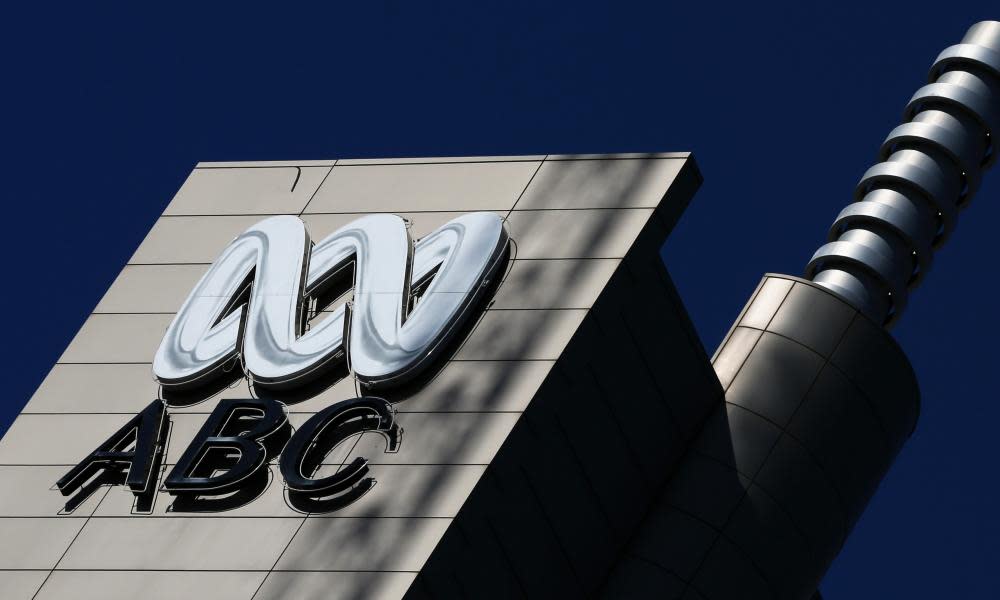Google and Facebook should pay to use ABC and SBS content, ACCC told

Google and Facebook should pay to use ABC and SBS content as well as news produced by commercial media, public interest journalism advocates have told the competition watchdog.
The funds collected from the digital platforms should be used to to set up an independent public interest journalism fund rather than be funnelled back into the public broadcasters, the Public Interest Journalism Initiative said in a final submission.
The media industry has been hit hard by Covid-19: 29 newspapers and TV stations have closed down and a further 97 newspapers have ceased to produce print editions, PIJI said.
Related: Google can afford a slice of its billions to help sustain journalism, Labor says
The consultation period for the draft mandatory code under which Google will be forced to pay Australian media companies for news appearing on Google closed on Friday.
Google has taken the fight against the legislation down to the wire, bombarding Australian users with a yellow hazard warning that states: “The way Aussies search every day on Google is at risk from new government regulation”, and repeating the message on YouTube’s social media accounts.
If you're an Australian creator, the News Media Bargaining Code could impact you. Read more answers to frequently asked questions below ↓ (1/4) pic.twitter.com/Nj2pf1Eo3o
— YouTube Creators (@ytcreators) August 29, 2020
But the Australian Competition and Consumer Commission has called the campaign misinformation and will draft the legislation now the final submissions are in.
In a joint submission the Public Interest Journalism Initiative and the Judith Neilson Institute for Journalism and Ideas called on the ACCC to amend the code to include the ABC and SBS, but use the revenue to fund public interest journalism.
The chair of PIJI, Allan Fels, a former chair of the ACCC, said there was a danger in excluding the ABC and SBS. “There is a real chance that digital platforms will adopt far more of their content than from news organisations whose content they have to fund,” Fels said.
The Australia Institute’s Centre for Responsible Technology has also thrown its weight behind the idea.
The draft mandatory news code does not require the digital platforms to share revenue with the public broadcasters because they are funded by the taxpayer.
In March, ACCC chair Rod Sims said any revenue that came to the ABC as a result of the new code “would be applied to the delivery of ABC charter objectives” but after he delivered the code the ABC and SBS were excluded and he said that was the government’s choice.
“Clearly, digital platforms derive direct and indirect value from the volume of news content generated by public broadcasters, particularly as the ABC and SBS are the most trusted news sources in Australia,” the PIJI submission says.
“If Google and Facebook pay for content from News Corp and Nine, but not from the public broadcasters, then in effect the Australian taxpayers are arguably subsidising the digital platforms.”
The Centre for Responsible Technology agreed there were dangers in allowing Facebook and Google to use taxpayer-funded journalism without a fee. The platforms “may be incentivised to prefer their content to content for which they have to pay”, the centre said in its submission.
The director of the centre, Peter Lewis, said it was a critical moment that will define our relationship with the global technology platforms.
Related: Why is Google taking aim at the Australian government with saturation advertising?
“It is difficult to imagine an issue more pertinent in this digital age than the decline of media revenues and the overwhelming power of Google and Facebook,” Lewis said.
“We know that Google and Facebook have become the dominant advertising platforms. We also know the impact this has had on media outlets – with more than 5,000 jobs disappeared in the past decade.”
Fels also called for more clarity about how the revenue will be calculated and for more attention to be paid to how the smaller players will not be disadvantaged compared with News Corp and Nine Entertainment.
“Our proposal is aimed at overcoming the concern that small innovators in public interest journalism could otherwise come out badly under the final offer arbitration process,” professor Fels said.
“Final offer arbitration has much to offer but it is extremely important that the bargaining power of all parties big and small is equally protected and this is one way of doing that.”

 Yahoo News
Yahoo News 
